Organic Ginger Powder: The body's secret antioxidant weapon | FocusHerb
Inside our bodies, a quiet war is going on all the time, and free radicals are the "enemy" in this war. Free radicals are a class of substances with high chemical activity, and their production in the body stems from a variety of physiological and external factors.
Release time:
2025-03-05
Source:
Inside our bodies, a quiet war is going on all the time, and free radicals are the "enemy" in this war. Free radicals are a class of substances with high chemical activity, and their production in the body stems from a variety of physiological and external factors. The normal metabolic process is like an orderly factory, which produces energy to maintain the operation of life at the same time, but also inevitably produces free radicals as a "by-product". Just like a car engine produces exhaust when it burns gasoline to drive the vehicle forward. In addition, ultraviolet rays, environmental pollution, smoking, radiation and bad living habits, such as staying up late, excessive drinking, long-term high-pressure state, etc., will act as a catalyst to promote the production of free radicals in the body.
Excessive free radicals are like a group of out-of-control "troublemakers" in our body, launching round after round of attacks on cells and tissues, and bringing serious harm to our health. Cells are the basic bricks that form the "building" of our body, and the damage caused by free radicals to cells can be called "all-round". As the "protective barrier" of cells, the cell membrane has important physiological functions, which controls the entry and exit of substances and maintains the stability of the intracellular environment. However, free radicals have strong oxidation capacity and can attack unsaturated fatty acids on cell membranes, triggering lipid peroxidation. This is like a sharp knife, cutting the structure of the cell membrane into pieces, making it lose its original elasticity and function. Once the cell membrane is damaged, the cell is like a city without the protection of the wall, all kinds of substances enter and exit at will, the normal metabolic order within the cell is disrupted, the physiological function of the cell is also seriously affected, and may even lead to cell death.
Proteins and enzymes play a vital role in our bodies, they are involved in various chemical reactions and physiological processes in the body, and are the "behind the scenes heroes" of life-sustaining activities. But free radicals don't show mercy; they react with proteins and enzymes to change their structure and function. This is like forcing a delicate machine part to twist and deform, so that the machine cannot function properly. When the function of proteins and enzymes is impaired, a series of important physiological processes such as the body's metabolism, immune regulation, and energy production will be hindered, which will lead to various health problems.
Genes are the "blueprints" of our lives, storing genetic information that determines the various characteristics and physiological functions of our bodies. However, free radicals do not spare genes, it can attack the molecular structure of genes, causing gene mutations. It's like slicing and dicing over a fine picture, muddling the correct information. Genetic mutations can trigger abnormal cell proliferation and differentiation, increasing the risk of serious diseases such as cancer.
Free radicals are also inextricably linked to aging. With the growth of age, our body's various functions gradually decline, which free radicals can be described as "indispensable". The continuous destruction of cells and tissues by free radicals will cause the skin to lose elasticity, increase wrinkles, and appear age spots; Weakened immune system, vulnerable to various diseases; Organ function declines, and the overall vitality and metabolism of the body decrease. It can be said that free radicals are one of the important factors that accelerate our aging process.
In the face of the dangers of free radicals, antioxidant is particularly important. Antioxidants are like a solid line of defense for our bodies against free radical attacks. Among the many substances with antioxidant effects, Organic Ginger Powder stands out with its unique composition and strong antioxidant capacity, becoming our right hand to maintain health.
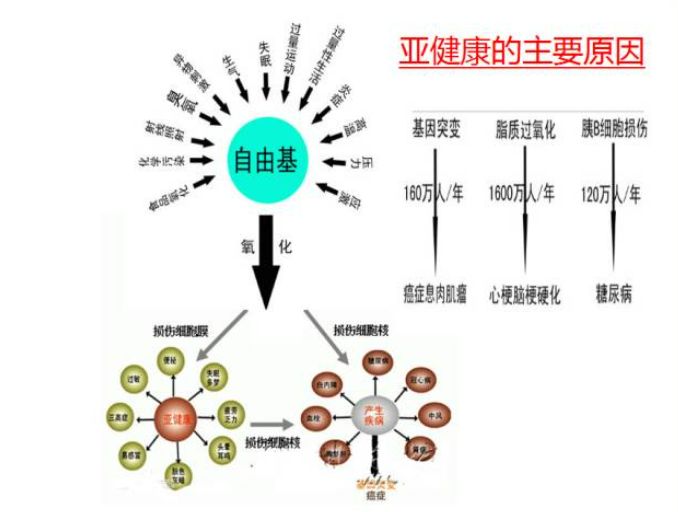
Organic Ginger Powder secrets: analysis of antioxidant components
Gingerol: antioxidant pioneer
Gingerol is the most well-known antioxidant component in Organic Ginger Powder. It is not a single compound, but the general name of a class of phenolic compounds with similar structure and biological activity, mainly including gingerol, gingerol, gingerol and gingerone. These ingredients give ginger powder its unique pungent taste and also make it useful in the field of antioxidants.
The antioxidant principle of gingerol is like a precise "sniper war". Due to the existence of unpaired electrons in the outer electron orbit, free radicals have extremely high chemical reactivity, and are always looking for opportunities to rob the electrons of other molecules, resulting in a series of oxidation reactions, causing damage to cells and tissues. The phenolic hydroxyl group in the molecular structure of gingerol has a strong hydrogen supply capacity, and can quickly provide its own hydrogen atoms to free radicals. This is like finding an "electronic partner" for free radicals, which neutralizes their originally active chemical properties and becomes a relatively stable substance, thereby preventing the attack of free radicals on other molecules and effectively protecting cells from oxidative damage.
At the cellular level, gingerol's protective effect on cell membrane is particularly critical. The cell membrane is an important barrier between the cell and the external environment, maintaining the stability of the intracellular environment and ensuring the normal physiological function of the cell. When free radicals attack the cell membrane, gingerol can react with free radicals first and block the lipid peroxidation chain reaction triggered by free radicals. It is like establishing a solid "defense line" around the cell membrane, preventing the lipid on the cell membrane from being destroyed by oxidation, and maintaining the integrity and fluidity of the cell membrane. This not only helps to maintain the normal shape and structure of the cell, but also ensures that various ion channels, receptors and transporters on the cell membrane work normally, ensuring the smooth exchange and signal transmission of substances inside and outside the cell.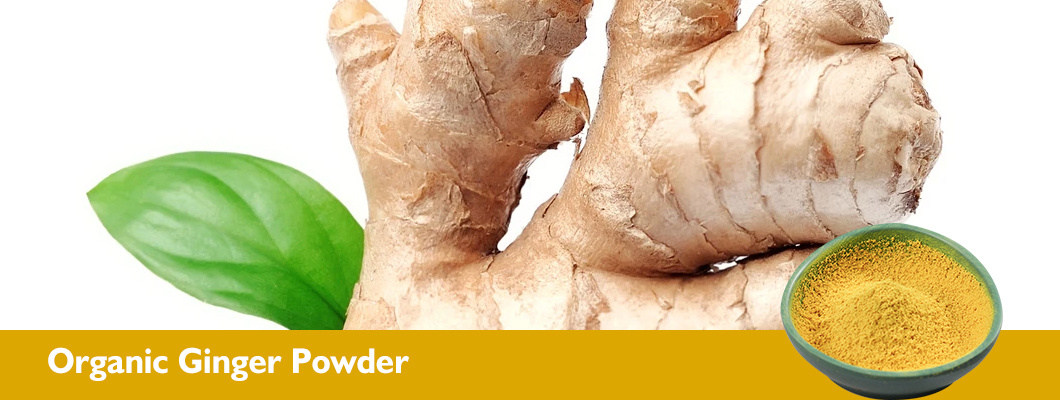
At the molecular level, the protection of gingerol on proteins and enzymes can not be ignored. Proteins and enzymes are the participants and catalysts of various biochemical reactions in the cell, and their structural and functional integrity directly affect the metabolic activities of the cell. Free radicals attack proteins and enzymes, resulting in structural changes and loss of activity. Gingerol can reduce the attack of free radicals on proteins and enzymes by binding to free radicals, maintaining their normal structure and function. In addition, gingerol may also affect the expression of related genes by regulating intracellular signal transduction pathways, promote the synthesis and repair of proteins and enzymes, and further ensure the orderly conduct of biochemical reactions in cells.
The powerful antioxidant effect of gingerol has brought many benefits to human health. In terms of cardiovascular health, gingerol inhibits oxidative modification of low-density lipoprotein (LDL). LDL is easy to be deposited on the blood vessel wall after oxidation, triggering inflammation and gradually forming atherosclerotic plaque, increasing the risk of cardiovascular disease. Gingerol reduces the oxidation of LDL through antioxidant action and reduces the risk of cardiovascular disease. In the prevention of cancer, although gingerol cannot directly kill cancer cells, it can reduce the damage of free radicals to DNA and reduce the probability of gene mutation by removing free radicals. At the same time, gingerol may also regulate cell proliferation and apoptosis signaling pathways, inhibit the growth and spread of cancer cells, and have certain positive significance for cancer prevention and adjuvant therapy. Gingerol also has anti-inflammatory effects, which can reduce the damage of inflammatory responses to body tissues. Many chronic diseases, such as arthritis and diabetes, are closely related to inflammation, and the anti-inflammatory and antioxidant properties of gingerol play an important role in the prevention and remission of these diseases.
Diphenylheptane compounds: antioxidant synergists
Diphenylheptane compounds are another important antioxidant component in Organic Ginger Powder, and they cooperate with gingerol to jointly contribute to the antioxidant capacity of Organic Ginger Powder. This class of compounds has a unique chemical structure, consisting of two benzene rings connected by a heptane chain, which gives them good antioxidant properties.
In the antioxidant process, the diphenylheptane compounds and gingerol formed a synergistic relationship. When free radicals invade, gingerol first, by its strong reactivity, rapidly binds to free radicals and neutralizes their activity. However, in some complex oxidative stress environments, gingerol alone may not be able to fully respond to free radical attacks. At this point, the diphenylheptane compounds play an important role. Together with gingerol, they can participate in the scavenging process of free radicals, capturing and neutralizing free radicals more comprehensively from different reaction pathways and action sites. This synergistic effect is like a well-coordinated basketball game, in which gingerol and diphenylheptane compounds play different roles, passing and cooperating with each other to jointly complete the "defense" task against free radicals, which greatly enhances the antioxidant capacity of Organic Ginger Powder.
The diphenylheptane compounds themselves also have excellent antioxidant properties. They are able to react with free radicals by providing electrons or hydrogen atoms to convert them into stable products. Moreover, diphenylheptane compounds can also regulate the activity of intracellular antioxidant enzyme systems, such as superoxide dismutase (SOD) and glutathione peroxidase (GSH-Px). These antioxidant enzymes are an important part of the body's own defense system and are able to catalyze the breakdown of free radicals, converting them into harmless substances. By enhancing the activity of these antioxidant enzymes, diphenylheptane compounds further improve the antioxidant capacity of cells, forming a multi-level and multi-pathway antioxidant network.
In terms of preventing disease and delaying aging, the performance of diphenylheptane compounds is also excellent. It was found that the diphenylheptane compounds had certain anti-inflammatory, antibacterial and antiviral effects. They can inhibit the release of inflammatory mediators, reduce the damage of inflammatory response to body tissues, and help prevent and alleviate some inflammation-related diseases, such as gastritis and enteritis. In terms of antibacterial and antiviral, diphenylheptane compounds can destroy the structure of bacteria and viruses, inhibit their growth and reproduction, and play a positive role in maintaining human health. In terms of delaying aging, diphenylheptane compounds reduce the damage of free radicals to cells and tissues by removing free radicals, and maintain the vitality and function of cells. They can also regulate the metabolic process of cells, promote the repair and regeneration of cells, thereby slowing down the aging process of the body and keeping the body young.
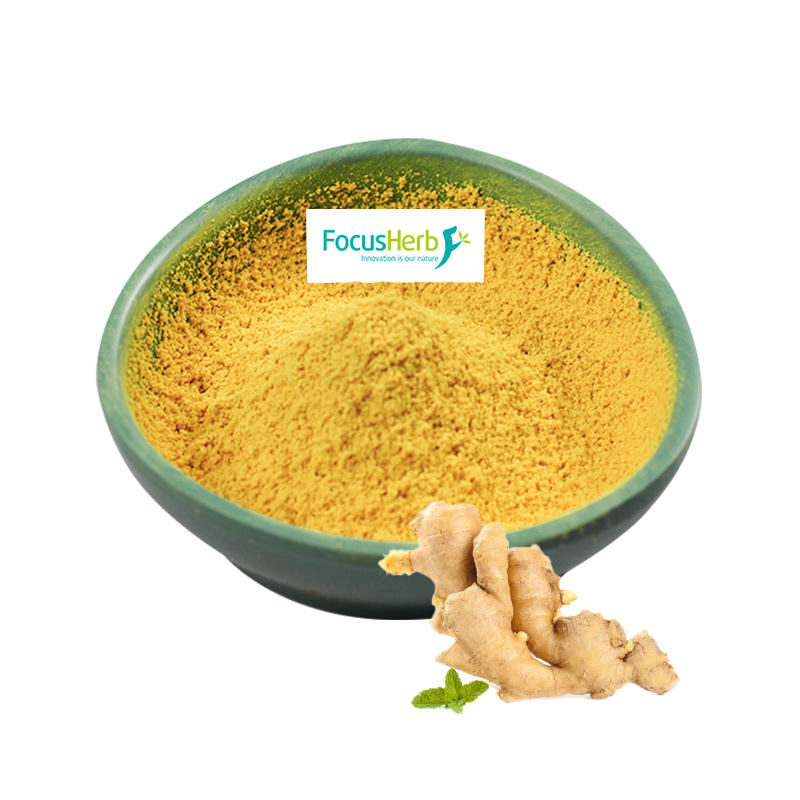 Other antioxidants: Team help
Other antioxidants: Team help
In addition to the two main antioxidant components of gingerol and diphenylheptane compounds, Organic Ginger Powder also contains some "small and beautiful" antioxidant components, such as vitamin C, vitamin E and trace elements such as zinc and selenium. Although the content of these ingredients in Organic Ginger Powder is relatively small, they play an indispensable auxiliary role in the antioxidant process, and together with the main ingredients constitute a powerful antioxidant system.
Vitamin C, also known as ascorbic acid, is a water-soluble vitamin with strong antioxidant power. It is able to react directly with free radicals, reducing free radicals to stable substances, thereby removing free radicals in the body. Vitamin C can also participate in a variety of REDOX reactions in the body, regulate the REDOX state in cells, and maintain the normal physiological function of cells. In Organic Ginger Powder, vitamin C collaborates with gingerol and diphenylheptane compounds to enhance the antioxidant effect. For example, vitamin C can regenerate oxidized gingerol and diphenylheptane compounds, restoring their antioxidant activity, thereby prolonging their antioxidant action in the body.
Vitamin E is a fat-soluble vitamin that is mainly found in the lipid bilayer of cell membranes and is an important antioxidant of cell membranes. Vitamin E can trap free radicals on the cell membrane, prevent the lipid peroxidation caused by free radicals, and protect the integrity and stability of the cell membrane. At the same time, vitamin E can also interact with vitamin C to form an antioxidant cycle. When vitamin E is oxidized, vitamin C can reduce it to its active form, allowing it to continue its antioxidant effects. In Organic Ginger Powder, vitamin E, together with other antioxidant components, jointly guard the health of cells and resist the damage of free radicals.
Trace elements such as zinc and selenium also play an important role in the antioxidant process. Zinc is a component of many enzymes, including some antioxidant enzymes such as superoxide dismutase (SOD). Zinc indirectly enhances the antioxidant capacity of cells by participating in the synthesis and activation of these antioxidant enzymes. Selenium is an important component of glutathione peroxidase (GSH-Px), which catalyzes glutathione to reduce hydrogen peroxide and organic peroxides, converting them into harmless water and alcohols, thereby removing free radicals from the body. Trace elements such as zinc and selenium cooperate with other antioxidant components in Organic Ginger Powder to jointly maintain the REDOX balance of the human body and protect cells from free radical damage from different angles and ways.
Proper use of Organic Ginger Powder: maximize antioxidant benefits
How to eat: A variety of choices
Organic Ginger Powder can be eaten in a variety of ways to meet the tastes and needs of different people, so that we can easily absorb its antioxidant nutrients while enjoying delicious food.
Drinking water: This is the most convenient way to eat, every morning after getting up, take 1-2 grams of Organic Ginger Powder into the cup, with 30-50 ℃ warm water brewing. The water temperature should not be too high, otherwise it will destroy the nutrients in the ginger powder. After stirring well, drink slowly, both to warm the stomach, but also to start the day's antioxidant journey. In the interval of work, when you feel tired or cold, you can also soak a cup of ginger powder water to refresh your mind and resist the cold.
Add to the dish: Organic Ginger Powder can be used in the cooking process. When cooking, whether it is fried green vegetables, fried shredded meat or fried shredded potatoes, adding a small spoon of ginger powder before the pot can add a unique flavor to the dish and increase the smell. When stewing dishes, such as stewed ribs, stewed beef, stewed chicken soup, etc., adding an appropriate amount of ginger powder can not only make the soup more rich and delicious, but also release the nutrition of the ingredients better and enhance the nourishing effect of the dishes. When making soup, whether it is a light vegetable soup or a rich seafood soup, ginger powder can add a mellow taste to the soup and enhance the taste level of the soup.
Make drinks: Ginger powder can also be used to make a variety of delicious and healthy drinks. Ginger tea is a classic mix, ginger powder and brown sugar, red dates cooked together, the sweet brown sugar, red dates and ginger powder spicy fusion, with warm palace and cold, qi and blood, especially suitable for women in the menstrual period or cold winter drinking. When making ginger milk, first heat the milk to 70-80 ° C, and then pour the appropriate amount of ginger powder into the bowl, and then quickly pour the hot milk into the ginger powder, and let it stand for a few minutes, the milk will solidify into a tender ginger milk. This dessert taste delicate, sweet with spicy, both to satisfy the enjoyment of taste buds, but also to absorb the nutrition of ginger powder. Ginger powder can also be matched with honey, honey and spicy ginger powder complement each other, with the role of moistening lung cough, moistening bowel.
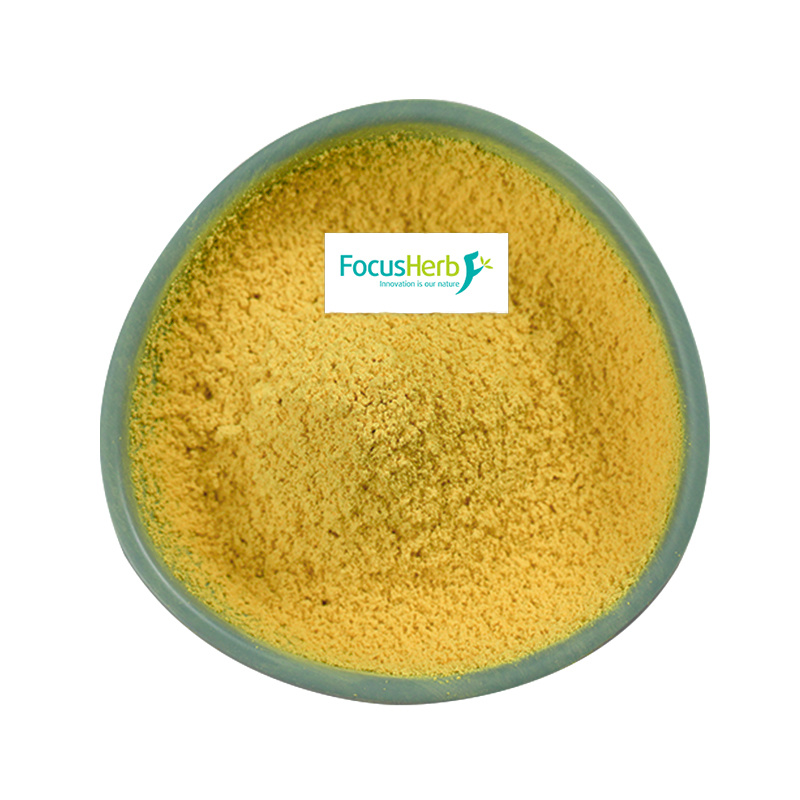
Dosage: scientific control
When eating Organic Ginger Powder, it is important to scientifically control the dose, and different people should take it reasonably according to their own conditions to ensure that it can safely and effectively play its antioxidant role.
Adults: In general, the dosage of Organic Ginger Powder for adults can be controlled at 3-10 grams per day. This dosage range can meet the body's needs for antioxidant components of ginger powder without causing a burden to the body due to excessive consumption. If ginger powder is used for daily health care, such as preventing colds, improving digestion, etc., 3-5 grams per day can be used. It can be eaten several times, such as soaking a cup of ginger powder water in the morning and adding an appropriate amount of ginger powder to dishes in the evening. If there is some slight discomfort in the body, such as cold, stomach cold, etc., the dose can be appropriately increased to 5-10 grams, but the continuous consumption time should not be too long, generally 3-5 days.
The elderly: the body function of the elderly is relatively weak, and the digestive function has also declined, so when eating Organic Ginger Powder, the dose should be appropriately reduced, 2-5 grams per day is appropriate. The elderly can choose to add ginger powder to the porridge and boil it together, so that the ginger powder can be better digested and absorbed, and can warm the stomach and strengthen the spleen. In the course of eating, if the elderly appear on fire, dry mouth and other uncomfortable symptoms, should stop eating or reduce the dose, and consult the doctor's advice.
Special constitution: Yin deficiency constitution, its body performance is hot, such as hands and feet heart fever, dry mouth, upset and irritable, such people should be careful to eat Organic Ginger Powder. Because ginger powder is warm, it may aggravate the symptoms of Yin deficiency, if you need to eat, you should be under the guidance of a doctor, strictly control the dose, generally not more than 1-2 grams per day. People suffering from gastrointestinal diseases such as gastric ulcer and duodenal ulcer, the spicy ginger powder may stimulate the gastric mucosa and aggravate the condition, so it is not suitable for consumption. Patients with hypertension also need to be cautious when consuming ginger powder, ginger powder in the gingerol may lead to increased blood pressure, if you need to eat, you should closely monitor blood pressure changes, and under the guidance of a doctor.
Organic Ginger Powder antioxidant: future prospects
Organic Ginger Powder has shown great potential in the field of health with its rich antioxidant components and significant antioxidant effects. From the current research, the mechanism of action of antioxidant compounds such as gingerol and diphenylheptane compounds has gradually become clear, and they play a key role in scavenging free radicals and protecting cells and tissues from oxidative damage. Human studies and life cases also provide strong evidence for the antioxidant efficacy of Organic Ginger Powder, so that we can actually see its positive impact on improving human health.
Looking forward to the future, the research of Organic Ginger Powder in the field of antioxidant is expected to make more breakthroughs. In terms of composition research, although we have a certain understanding of the main components such as gingerol and diphenylheptane compounds, there are still many unknowns waiting for us to explore. Future studies can dig deeper into other potential antioxidant components in Organic Ginger Powder, as well as the synergistic mechanism between these components, and further reveal the antioxidant mystery of Organic Ginger Powder. For example, the differences in composition and antioxidant capacity of Organic Ginger Powder made from different origin and different varieties of ginger were studied, so as to screen out better raw materials and provide scientific basis for the production of high-quality Organic Ginger Powder.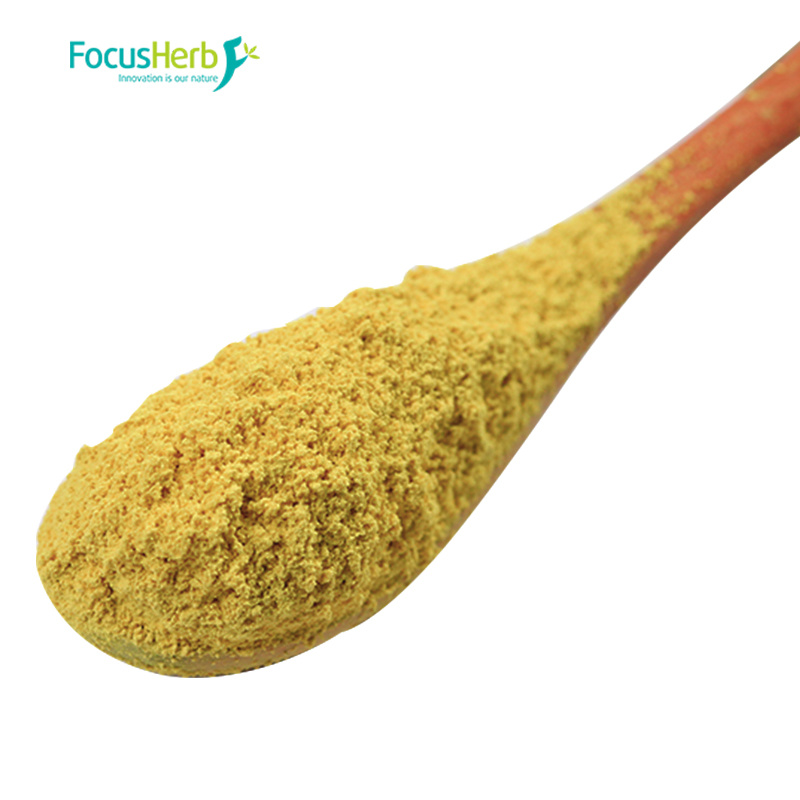
In terms of application research, Organic Ginger Powder has a broad application prospect in food, health care products and medicine. In the field of food, with the increasing demand for healthy food, Organic Ginger Powder can be used as a natural antioxidant and flavoring agent, and is widely used in the production of various kinds of food. For example, adding Organic Ginger Powder to baked goods can not only extend the shelf life of the food, but also add unique flavor to the food; Organic Ginger Powder is added to the drink to create a functional drink with antioxidant effects to meet consumers' dual pursuit of health and taste. In the field of health products, antioxidant health products developed with Organic Ginger Powder as the main raw material are expected to become hot products in the market. Through scientific formula design and production process, Organic Ginger Powder is combined with other nutrients to make health care products suitable for different people, such as anti-aging health care products for middle-aged and elderly people, anti-fatigue health care products for office workers, etc., to provide more comprehensive care for people's health. In the field of medicine, the antioxidant effect of Organic Ginger Powder may play an important role in the prevention and treatment of diseases. Future studies can explore the specific mechanism of action and application effect of Organic Ginger Powder in the prevention of cardiovascular diseases, cancer, diabetes and other chronic diseases, and provide ideas and basis for the development of new natural drugs.
As a natural, safe and effective antioxidant, Organic Ginger Powder has a broad development prospect in the future health industry. We expect more researchers to devote themselves to the research of Organic Ginger Powder, and constantly explore its potential value, so that Organic Ginger Powder can make greater contributions to human health. At the same time, it is also hoped that consumers can better understand the antioxidant effect of Organic Ginger Powder, reasonable consumption, and enjoy the health benefits it brings.
Organic Ginger Powder
Related News






